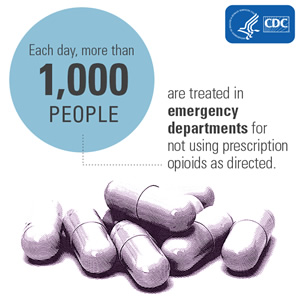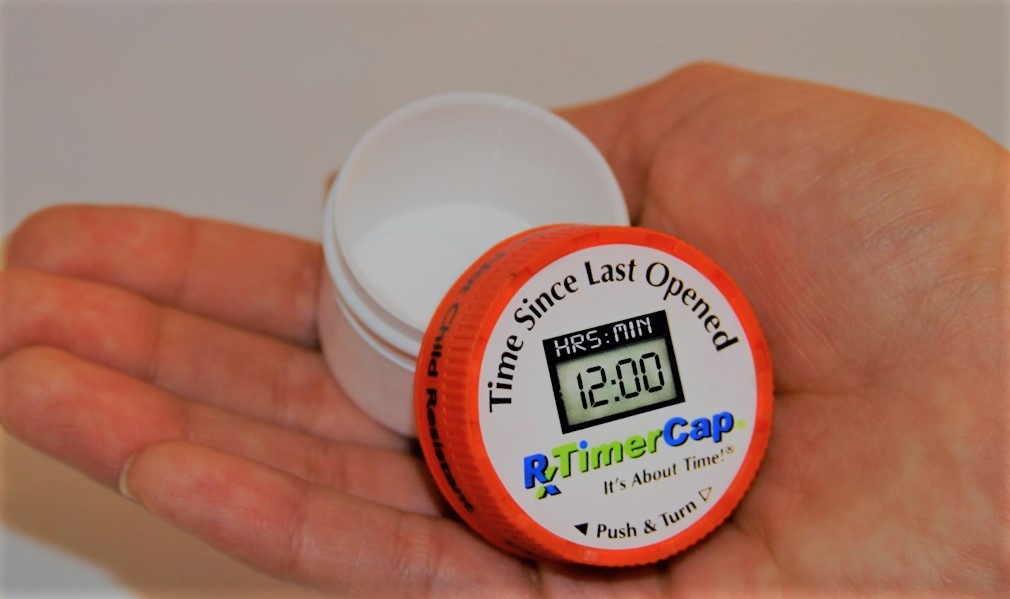Misuse of prescription pills continues to be a growing public health problem in the U.S.
It is estimated that 20 percent of adults, or 54 million people, have used prescription medications for nonmedical reasons. In just one day, more than 1,000 people receive emergency room treatment throughout the country for failing to use prescription opioids as directed.
 Public safety seems to be a federal priority. After all, laws on drug packaging and dispensing exist to keep patients safe. The U.S. Food & Drug Administration (FDA)urges people to lock up their medicines at home. And yet, the Centers for Disease Control and Prevention (CDC) states that the drugs linked to overdose deaths the most are methadone, oxycodone, and hydrocodone — which highlights the dangers imposed by pills.
Public safety seems to be a federal priority. After all, laws on drug packaging and dispensing exist to keep patients safe. The U.S. Food & Drug Administration (FDA)urges people to lock up their medicines at home. And yet, the Centers for Disease Control and Prevention (CDC) states that the drugs linked to overdose deaths the most are methadone, oxycodone, and hydrocodone — which highlights the dangers imposed by pills.
Larry Twersky, Chief Executive Officer of Southern California-based TimerCap, LLC believes that prescription drug abuse should be curbed at the pharmacy level, which is why his company has been developing products like the RXTimerCap.
“Putting a lid on opioid abuse”
The RXTimerCap is essentially a cap for medication bottles that has a built-in LCD timer that automatically tracks how much time has passed since the container was last opened.
“Opioid abuse is a complex issue,” Twersky said. “We don’t think that we have the only answer. What we do believe is that most of the conversations about opioid abuse are focused on people who already have the problem, and nothing is being done other than draconian measures of restricting people who might actually need medication to not have it.”
When a prescription is filled, the label will most likely advise the patient to take it as needed. Even the most careful or well-intentioned patient may overuse or get caught up in a vicious cycle. The RXTimerCap is the only prevention, tracking, and diversion awareness tool for opioids currently available at most national pharmacies, he said.
“The pill packs are great,” Twersky said. “You have the ability to know when to take it. There’s compliance packaging in birth control and Z-Paks, but you can’t do that with opioids. When we talk about ‘take as needed’ drugs, there’s no good way to use that kind of packaging unless there’s a timer on it.”
Although the RXTimerCap doesn’t provide any prescription theft prevention, it’s one of the most affordable options on the market. Most tamper-proof pill dispensers cost about $100 but three RXTimerCaps can be purchased for $10; Medicare or Medicaid patients can also use a special code provided by the company to bill the Healthcare Common Procedure Coding System.
“Opioid abuse starts not on a logical level but on an emotional level,” Twersky said. “TimerCaps are great when there’s an emotional component or an asymptomatic challenge.”
Benefits of using the original container
Pharmacists often instruct patients to move their medications into 7-day pill boxes or containers, usually offered by the pharmacies, while the safest move for patients is to keep their controlled medications in its original container.
Original bottles provide not only labeling and safety requirements but potentially lifesaving information like the exact pill descriptions, dosage, and the most common side effects.
“I find it reprehensible, absolutely morally and ethically incorrect, that pharmacies carry products that disregard labeling and safety information in lieu of a perceived patient benefit,” Twersky said. “I believe none of that should be sold unless it has the same level of safety and labeling information of the original packaging.”
According to Twersky, the vast majority of pill boxes and organizers sold by retailers circumvent all the laws that have been put into place regarding package protection so far, thus products that don’t follow safety and labeling standards mandated by the state ought to be banned.
“If an emergency worker comes because somebody has overdosed, they have seconds to make a decision,” he said. “If they see a 7-day pill box with non-descriptive pills in it, they have to try to figure out what counter has that medication so they can understand what was taken. That’s not reasonable.”
Changing intake
Following the doctor’s instructions prevents complications and improves overall health, but taking pills exactly as prescribed can be… (continue reading)

















